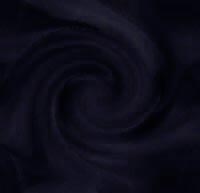
There is no right way.
If it speaks to your heart, if it works for you, it's right.
Now, I will clarify, to paraphrase Scott Cunningham in his wonderful book, Living Wicca, there are some things that if you do them, while you might very well be doing something that works for you, you're not practicing Wicca. So given that (and let me clarify, the following is MY opinion. Others may disagree with me. That's their right. If we wanted dogma we'd be in another belief system), what is required for something to be Wiccan?
Participatory reverence is that we take part in both the revering and the being revered, by showing reverence to the God and Goddess in ourselves and each other. This is a complicated subject to address, because in one breath the Wiccan says "Thou art God/dess - the Lord and Lady are within you and of you" and in the other breath welcomes the Lord and Lady to join a Circle. This is possible because we recognize the Divine as immanent. What does immanent mean? Present in the world, the universe, not outside of it; within all things; comprised of all things. Some of us go on to the next step and describe Divinity as both immanent and transcendent - the Divine is comprised of the world, all things are a manifestation of the Gods; and yet the gods are also more than the sum of their parts, the Divine both is the universe and transcends the universe. So I can say "You are a manifestation of the Goddess", and "The Goddess is the transcendent creatrix of the universe", and I'm neither contradicting myself nor saying that I think that you-as-a-fellow-mortal-being-on-this-planet went out and gave shape to the void. Because the God and Goddess are more than the sum of their parts.
And boy, does this get into the thorny parts of Wiccan cosmology, in more than one way. First, anything that has anything to do with sex in this society becomes heavily charged. If our society were anything resembling healthy in our attitudes about sexuality, it wouldn't be such a shock to have a religion proclaiming sexuality as sacred. But since sex has been so riddled with control, manipulation, double-standards, supression, and irreverence, a view of healthy, sacred sexuality is very difficult to attain. The Wiccan view of sexuality is one that comes from a much healthier time, and therefore looks strange to us today after hundreds of years of poisoning. Simply put, Wicca treats sexuality as one of the ways in which we are closest to the Gods. If God is love, then a respectful act of love-making is going to be the closest we get in our mortal forms to experiencing how we love as God and Goddess. Because when it's not glossed over by glamour, shame, or selfishness, a sexual act is simply the most barriers we can lower to another person - vulnerability and closeness in body and spirit both. Many people have told me that the only time they have ever felt 'telepathic' was when in bed with someone they loved. Wiccan sexuality is not about 'easy sex' - far from it. It is about rejoicing in your potential for love as a sexual being, rejoicing in your potential to create, for that's the other part of sexuality - it can be participation in the act of creating another life, and if that isn't the closest we get to being Gods I don't know what is (says the mother of two). No wonder the powers that be have twisted our views of sexuality for so long. It's powerful stuff. If we could accept ourselves as healthy sexual beings without shame, we might start realizing how much of the powers of Gods we have.
The second thorny part becomes the 'male-female' polarity issue when applied to a gay couple. The problem becomes in seeing masculinity and femininity as fixed things. In mystical terms, when you are being active - moving, giving, changing - you are being masculine, and when you are being passive - stillness, receiving, eternity - you are being feminine. This quite obviously has *nothing* to do with the capabilities of males and females - again, this is a place where hundreds of years of improper attitudes make us touchy and edgy about anything that faintly looks sexist, and quite rightly. But in a mystical sense these are simply terms that are used, and if you'd rather use 'active' and 'passive' so you don't feel sexist you can. But it's about seeing the masculine and feminine principles as *processes* and not fixed things, so no matter what your physical gender, you can be acting as a mystical masculine or feminine at any time.
